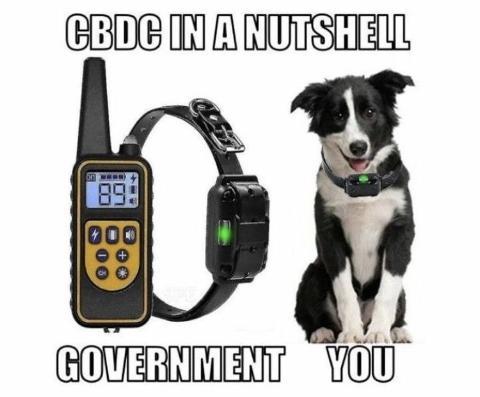In 2018, the people of New Hampshire amended their State Constitution. They added “[Art.] 2-b. [Right of Privacy.] An individual’s right to live free from governmental intrusion in private or personal information is natural, essential, and inherent.”
In the face of looming US Supreme Court rulings that Moderates and progressives thought might end the state’s ability to terminate pregnancies, they gathered together and proposed what became Article 2-b. A constitutional right to privacy. No shadows, no penumbras. It’s right there in black and white.
There are any number of things the state has done since that likely violate it, how could it not, to which we should add the growing movement to introduce a national digital currency. An electronic central ‘dollar’ would allow regulators doing business as police state spies to observe your transactions and, in more extreme cases, limit what you could buy, how much, or how often.
Some would scoff at such an idea, but these are many of the same people who didn’t ask why the IRS needs to know when you spend more than 300.00 (later changed to 600.00) on anything. That government would use big banking and big tech to run algorithms to detect spending habits down to the dollar, which would raise flags that might trigger alerts. A CBDC makes every penny traceable.
While the bank you chose to do business with could monitor it for fraud protection, it would be illegal in New Hampshire to cough it up to any local, state, or national government without a warrant, at least technically, becasue of Articel 2-b.
That’s not to say they wouldn’t do that anyway and not tell you. Shadow warrants are a lot more common than you think. The State violates you privacy all the time and with far too little objection from the Judicial branch, happy to cash its government paycheck while letting them spy on yours.
The difference with digital currency is everything is trackable in real-time, and in New Hampshire, the government should not be able to save or store any transition data that occurs within New Hampshire’s political borders until they have a warrant.
If a State is serious about its Constitution, it will not allow violations by third parties, especially the Pfederal Government.
Sadly, one of the problems that persists among elected officials in the Live Free or Die State is a failure to understand their role as defenders of our rights, regardless of who seeks to violate them. That the State Constitution they swear an oath to uphold is the measuring stick.
To my knowledge, we’ve yet to see anyone bring a case based on a violation of 2-b, but if CBDC continues on its current path, it seems impossible to avoid.
